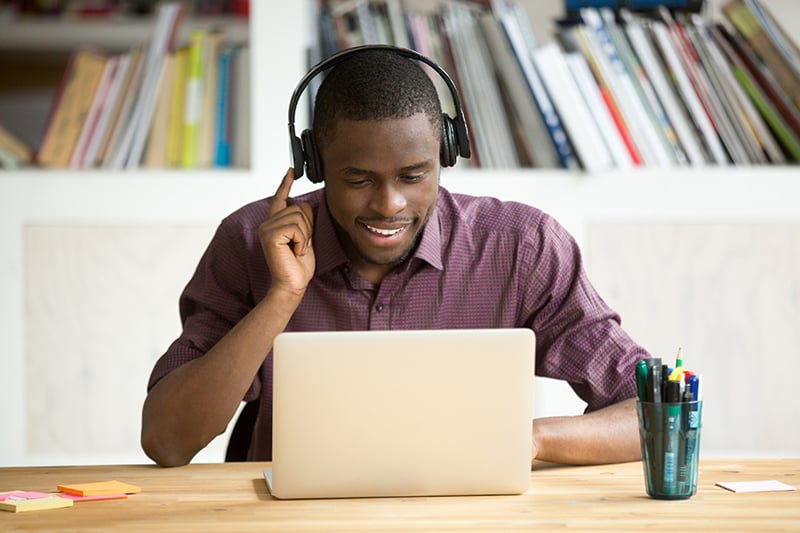Ashley Penington: Unprecedented Match Interview
What advice would you give to yourself at this time last year?
- Be flexible when understanding that some things are out of your control. There were so many changes happening last year surrounding the residency application process but also all the other aspects of life. Fortunately, emergency medicine is one of those specialties that has to rapidly adjust to unforeseen change, so I think that inherent resiliency and adaptability was inside of us all along, we just needed to be reminded of it along the way.
Did you have any concerns coming into the application cycle, especially given the changes due to COVID?
- I was concerned that it would be more difficult for me to match into a specific geographic region. Being from the Pacific Northwest and having my medical school in Washington state, my application screamed west coast even though I was hoping to match in the Midwest to be closer to my significant other as he completed his residency training. With limited aways, myself and several other applicants questioned how we could “unlock” geographic regions if it was outside of our home state or medical school region. Additionally, I did have concerns with bias against osteopathic applicants since in a normal application cycle it can be difficult to break the mold against programs that traditionally have few residents that come from an osteopathic training background. I think the fuel was sort of added to the fire when we entered the virtual interview season and there was a slow trickle of interview invites with concerns for interview hoarding.
Did COVID impact your preparation at all (eg study plans, exam cancellations, etc)
- COVID definitely impacted my preparation for boards, both in a positive and negative light. Somehow, I managed to complete my Level 2 PE right before things were shut down, so that was a big relief since I was the only person from my medical school who was able to take the exam. By the time I took both boards, my test date and location had been changed 8 times. Literally at 6 PM the night before my Step 2, I received the notorious email from Prometric saying that my test was canceled. I actually tweeted about it and someone from MedTwitter told me the same thing happened to them, but that they showed up and were still able to take the exam. So, I did the same, took the exam, and no one at the testing center had any clue why I would have received that email. It was a very emotional 24 hours, to say the least. On the flip side, being pulled from rotations did afford me a little more time to focus on studying. As someone with a weaker Step 1 score, I knew that I had to make a big jump with my scores. I also learned quite a bit when reflecting on Step 1, though this time around I took more breaks and focused on other aspects of my overall well-being to have a balanced approach to studying for both board exams. I think that helped to off-load the unnecessary pressure that I was putting on myself.
What is the biggest positive that you took out of the previous year?
- I have found myself having gratitude for even the smallest things in the past year. It was so easy to be wrapped up in the bubble of applying to residency and feeling like your world was falling apart when outside of that bubble, there were all these other tragedies happening. So, I started to focus on the things that were in my control that I could find gratitude for. In-person rotations canceled? Now I have the chance to be with my significant other and be a support system for one another vs being across the country. Only allowed to do one audition rotation? Well, if I have one shot, then I better be prepared and show them what I got! Virtual interviews? Oh, I was absolutely guilty of wearing yoga pants to a couple of those interviews. Being in the emergency department amid a pandemic? More like having the opportunity to learn from some of the most resilient doctors I have had the privilege of working with that continued to inspire me while on this journey.
Did the past year make you question (or reaffirm) your decision to pursue EM and why?
- This past year certainly reaffirmed my decision to pursue emergency medicine. I fell in love with emergency medicine because of the ability to make quick but impressionable relationships with our patients on what might be the worst day of their lives. Now more than ever, when patients often came in alone and needing someone to be at their bedside, establishing those relationships became even more crucial. Oftentimes, the hospitals where I did rotations were overwhelmed or busy, so I was able to spend more time with those patients and listen to their hardships and struggles through this pandemic. Being a fourth-year medical student was also the first time I could really see myself developing into an emergency medicine physician.
Did you rank programs differently based on the virtual interview experience? If so, what factors made you do so?
- There were some components of the virtual interview that did change how I ranked programs. I valued if the programs had a diverse representation for their residency program with the faculty they used to interview, though I am sure this would have been represented in person too. I also focused on the overall “vibe” that they brought to the interview day. A majority of programs-even in a virtual environment-had palpable energy and genuine investment in the programs that they had created. Another factor that changed how I ranked some programs was if the program commented on very specific things from my CV. This helped me to know that they took the time to get to know me as an applicant beyond the components of my board scores or SLOEs. It also helped when they brought these points up vs the awkward silence followed by the dreaded question of, “what questions do you have for me?”
Would you recommend having virtual interviews as an option for future application cycles? Why or why not?
- I think there were definitely some advantages to virtual interviews. The entire application process is incredibly costly, and doing interviews from the comfort of your home did help me save when I no longer had to worry about flights, hotels, rental cars, etc. However, I do see the setbacks in this process-not every applicant has stable internet, some share their space with family members or roommates, while the cost for travel wasn’t there, applicants still had to invest in webcams or lighting to try to make their interview environment more appealing. Initially, I thought that the virtual interview experience would feel artificial. Time and time again on the EMRA Hangouts, I would see questions from applicants who were concerned that the limited aways and lack of in-person interviews would make it difficult to understand the “feel” of the program, and I certainly had those fears as well. But programs across the country provided opportunities for applicants to see all the different aspects of their programs. From department tours, socials throughout the interview season with residents, ability to attend virtual didactics, there were new and innovative ways that programs also adapted to the application cycle, which helped me as an applicant to see whether or not I could see myself attending that program even without ever stepping foot in the hospital.
What were some unexpected obstacles or challenges during the virtual interview season? (Camera lighting, internet problems, etc)
- My dogs managed to be the most perfect doggos during interviews. Granted, I did have to distract them with treats and closing the blinds so they wouldn’t bark when the mail came, I luckily didn’t have any interruptions during the interview season.
Do you feel being a part of EMRA gave you an advantage in preparing for interviews/MATCH? If so, how?
- Inherently, EMRA did provide a big advantage with preparing for interviews and the Match. Since day one of medical school, I have been reliant on EMRA for the various advising tools they offer since I am at an orphan program that does not have specific one-on-one advising for EM Bound medical students. Over the years, I worked on networking by attending conferences like ACEP and CORD, meeting residents across the country through the specific EMRA committees, then ultimately working with the EMRA medical student council. As the student advising coordinator for the EMRA MSC this past year, I also know how beneficial the Hangouts were for applicants this past year because it was the quickest way that we could be transparent with the changes of this application cycle from the perspective of the stakeholders from EMRA, CORD, CDEM to the applicants. We continuously provided content about the new consensus statement, breakdown of the SLOE and OSLOE, how to prepare for virtual interviews, interview hoarding, and creating a rank list. Each of these sessions specifically addressed the concerns of the applicants and answered a lot of my questions as we navigated the new landscape.
Where did you match? What are you looking forward to the most? How will you celebrate?
- I am thrilled that I matched in emergency medicine at Rush in Chicago, IL. My main objective with finding the right residency program for me was having an environment where I was going to be supported. I knew that any residency program was going to give me phenomenal training to be an emergency medicine physician, but which program would also support me in what I call the +1 component. For me, that +1 is my continued involvement with EMRA on the Education Committee, my hope to work with current medical students in their education, and even community involvement (I guess it became more like +3….but that’s probably because I knew this program had the infrastructure and ability to support me no matter what avenues I pursued!) The other big component to all the celebrations that came with Match Day was having the opportunity to stay here in Chicago with my significant other and our two dogs. We started building a life here together away from our family and friends, so knowing that we will have one another while we create new friendships here during what will be some of the most difficult training we have faced is incredibly comforting. My co-residents are also amazing and I cannot wait to meet them in person in a few short months!
If you are interested in learning more about Shelby's experiences, check out the full interview!
Related Content

Oct 23, 2020
Program Director Interview Series: Matthew T. McCarthy, DO | EM Residency Program Director at St. Vincent Hospital Erie, PA
In this month’s addition to the Program Director Interview Series we got to chat with Dr. Matthew McCarthy to learn about the St. Vincent's Erie Emergency Medicine Residency Program in Northwest Pennsylvania.

Oct 09, 2020
EM Virtual Interviewing: Tips and Tricks
How can you put your best foot forward during residency interviews in the era of COVID-19? Virtual interviews are a change from traditional interviews, but they have been used successfully in the past for residency and fellowship positions. There are many ways to optimize your success; invest in the time to determine which work best for you.





